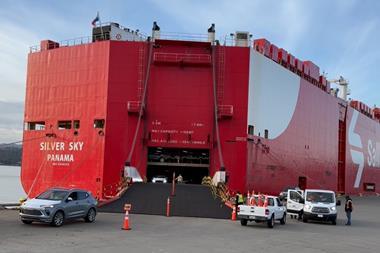
GM’s announcement last night that, after months of wrangling over the reluctant sale of Opel/Vauxhall, it would instead keep it probably brings as many new questions for its supply chain and logistics service providers as it might answer others. While it’s clear that GM’s European operations will remain an integral part of its global production and supply strategy, GM’s financial situation could mean harsher cuts in some areas, while opening up opportunities for providers able to save it much needed cash.
The decision itself has pleased some (not least GM itself) and frustrated many. Described as “fantastic and the right decision for General Motors” by Tony Woodley, secretary general of Unite, the main Vauxhall Union, German economy minister Rainer Brüderle called GM's behaviour over the future of Opel “totally unacceptable.”
From a strategic point of view, GM never wanted to sell its loss-making European business in the first place but was forced to given the $30.9 billion loss made in 2008 and a huge debt burden. However, financial support and bankruptcy protection have helped the company turn the business around to some extent. GM has also seen a rise in US sales in September for the first time in two years, bringing some encouragement for 2010.
Sources close to Opel's logistics management had previously expressed misgivings in private to Automotive Logistics about the potential sale of the carmaker and split from parent GM, at least in part because of the political dimensions involved in the aid offered from the German government, which would have protected German production. This morning Germany asked GM to repay the €1.5 billion in bridge financing extended by the banks and minister Brüderle has stated that the company will do just that.
Dismay in the supply chain?
One thing far from established, however, is what the restructuring of the European business, which the company has said it will now begin “in earnest”, will mean for the company’s supply chain operations. Logistics service providers in Germany might be more dismayed in particular.
“GM will have to begin making cuts very shortly, and they could be more dramatic than Magna's plans but would be [spread] more across Europe than in any specific country,” said Frost & Sullivan’s Anil Valsan, global director of research, automotive & transportation. “Unlike the Magna plan though, GM would perhaps look at leveraging Opel's engineering capabilities and specialisation in small and medium segment vehicles to create common platforms and reduce costs through standardisation,” he told Automotive Logistics.
Valsan said that GM will definitely have to look at cutting down on production capacities and this will be influenced by the need to show German and other European governments the merits of their restructuring plans in justifying the move to keep activity in house.
He added, “if they do succumb to pressures from the European governments they will only be postponing a critical problem specifically facing Opel and the general overcapacity problem in the European industry.”
While GM has already been through several rounds of painful cuts at both plant and management levels in North America – including logistics personnel – the European operations have been in a state of limbo.
According to Transport Intelligence’s Thomas Cullen, GM “will have to cut hugely” if it is to make its European operations viable even in the short-term, given that the company’s losses are likely to be significant, something they simply cannot afford.
Global impact
Any resolution of this through restructuring is likely to have wide-ranging consequences given the importance GM's European logistics operations have on the global network.
Europe is an important centre for R&D, suppliers and global platforms, including the upcoming Chevy Cruze, which will be derived from an Opel vehicle. With Opel remaining part of GM, it suggests that important components from Europe are more likely to continue being consolidated and transported across GM's global operations, from North America to South Africa. Under the Magna consortium, which included a Russian bank, the long-term strategy could have seen more production and technology shifted to Russia.
According to Valsan there will still be fairly severe consequences for suppliers, not only in terms of reduced volumes but also pressure on reducing pricing. “GM could look at standardisation of components as part of its platform strategy, and also rationalise its supply base across its global operations,” he said. “However, this would be a plan requiring more time to implement, compared to capacity rationalisation.”
Opportunities for providers
A change in ownership also offered opportunities for new providers to gain business with Opel. It is less clear now whether GM will change Opel's current logistics strategy in any significant way but, according to Cullen, the situation for existing logistics suppliers may be better than that offered by the Magna deal because now they have some idea of where things are going in the short-to-medium term. “It’s really unclear what Magna's plans were, ie how much production they were going to move to Russia,” he said.
Frost and Sullivan’s Valsan agrees that the situation is not as bad for LSPs and that the opportunities for new providers to find business have not been terminated. “GM would certainly consider new suppliers, as long as they are competitive on price and capabilities,” he said.



































